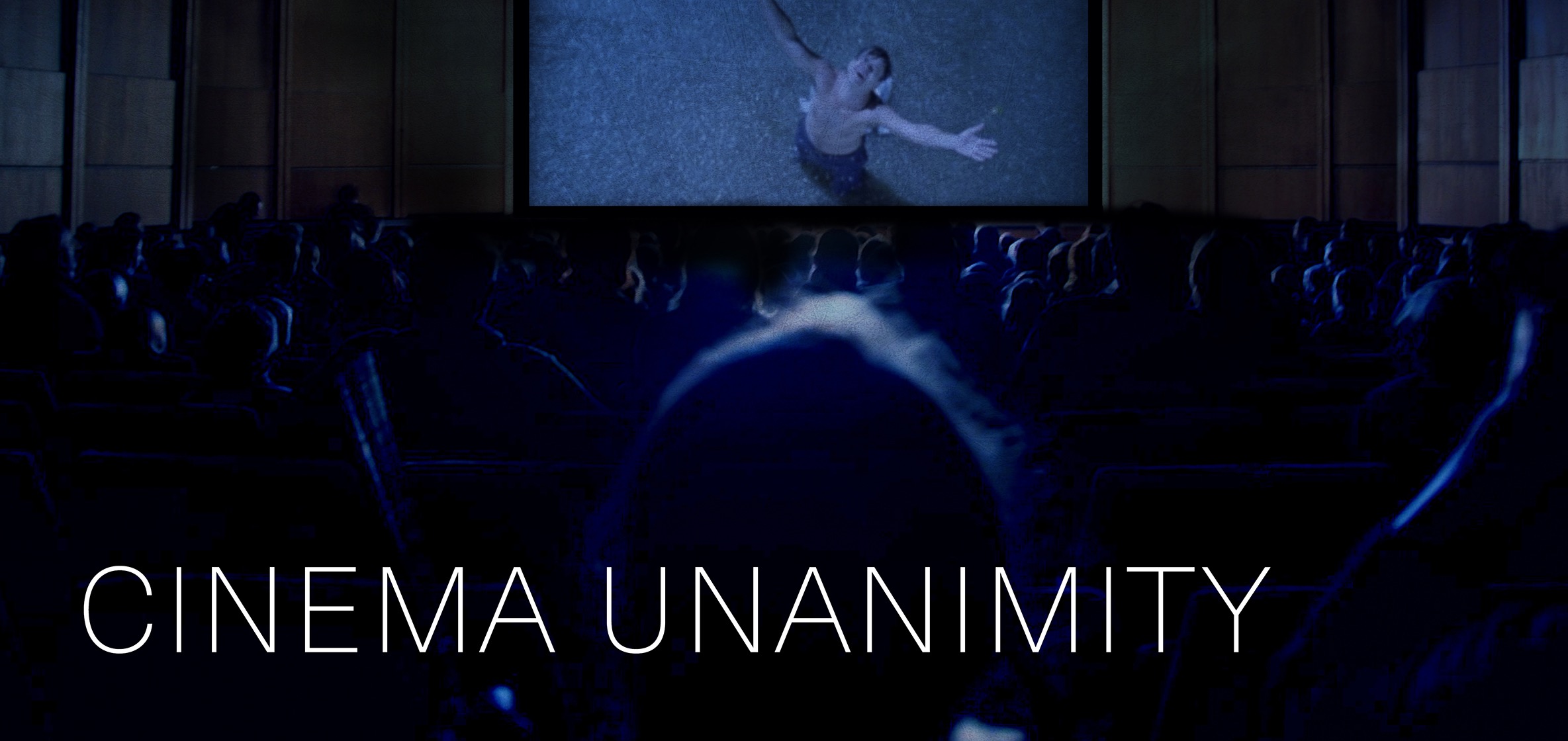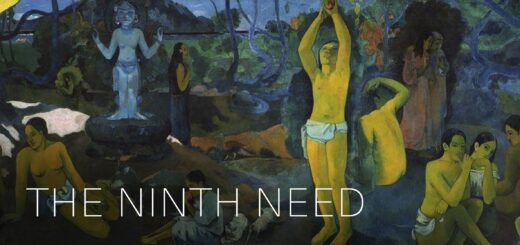Cinema unanimity

A strange thing happens in cinemas: unanimity.
In the real world, few of us can agree on how we should live our lives; but as cinema-goers we are typically unanimous—that’s right, unanimous—about what protagonists should do at every stage of their struggles. We all want Miss Bennett and Mr Darcy to ignore societal pressures and throw themselves into each other’s arms. We all want Frodo to ignore his own comfort and safety and set off on his heroic journey. And we all want Forrest Gump to just carry on being himself—Forrest Gump.
And yet, in the undimmed light outside our movie theatres, we don’t all determinedly seek romance, we are not all brave or good or generous, and we do not all genially accept unusual folk.
So how can screenwriters possibly know which protagonists and goals we will all support?
I know what you’re thinking: storytellers entertain and sometimes even inspire us by writing about our ideals, about what we should do in trying circumstances, not the day-to-day decisions of our tedious, imperfect lives.
But does that really explain cinema unanimity? If it is so obvious that we all prefer love and courage and generosity and peace and gratefulness and honesty to their respective opposites, then why do so many of us live such ignoble lives? Sure life is complicated, but it’s not holding a gun to our heads threatening us to act badly ‘or the kid gets it’.
I, for one, think there is more to this phenomenon than everyone somehow knowing we must expect protagonists, but not ourselves, to live and die by human ideals.
When I am on the edge of my seat urging the hero to hang on! my emotions are real. When I laugh out loud, or cry as silently as I possibly can, my emotions are real. When I hope the troubled will turn their lives around it is the same emotion I feel when I watch the parade of shame on the evening news. When I am angry at the actions of antagonists, it is the same anger I feel on the drive home from the cinema when I witness the actions of self-important nitwits who feel perfectly warranted operating their mobile phones and vehicles with the same two hands, while dispensing with the annoying customs of indicating or stopping for red lights.
The emotions, I swear, are universal. And they are universal because the trampled-on ideals that evoke them are also universal. So why, if we are all angered by selfish, harmful behaviour, do we only expect protagonists to live by our ideals?
The truth is, we don’t, and I believe this is a clue to understanding not only cinema unanimity, but the grandest of all enigmas: the meaning of life.
Whoa! Easy there, partner. Did you just say what I think you said? I sure did: the meaning of life; the purpose of existence; the secret to contentment; truth!
No, I’m not crazy—this is a theory. And if you’re secular, I’m not going to get all religious on you. And if you’re religious, I’m not going to discount or agree with your beliefs, but rather embrace them and, perhaps, even refresh them. So I’ll just continue.
The expectation we have for others to live up to our ideals is not limited to protagonists as they overcome evil on the big screen; there are, of course, many occasions when we expect ourselves and others to do the same. Some of these occasions are momentary—a life-or-death situation requiring a heroic response. Some last longer—a relationship with a trusted relative, partner, or friend. But we don’t expect everyone to act honourably all the time; just protagonists for their two-hour lives.
The most universal expectation humans have of others to act honourably, outside a cinema, is in the treatment of babies or children. We believe our young are ‘good’ humans who deserve our steadfast respect in both thought and deed.
So is there a link with cinema unanimity?
I think there is: youthfulness. Despite the fact that protagonists are of all ages, their lives only ever last a couple of hours. For us, they are eternally young.
So how does youthfulness affect our attitudes?
Youthful experience is comprehensible. We are able to comprehend everything that has happened in the life of a baby, child, or protagonist; whereas the only other people we even attempt to comprehend are those trusted relatives, partners, and friends—people we have observed for years.
There can be no doubting that humans believe humans are born ‘good’—just observe any adult interacting with a newborn. And as long as we believe a person remains well-intentioned (as we do with children and protagonists), they remain ‘good’ and we wish only for them to be treated with compassion and respect.
But as soon as we are unsure of what a person has experienced or how they have reacted to their experiences, we assume, pessimistically, that they may be weak or nasty or misguided. From there, it can take only a suggestion—like ‘all rich people are selfish’, or ‘you can never trust Arabs’—for lazy assumption to transform into destructive belief. And, before you know it, a hundred separate beliefs have combined into an overriding view of the human condition: that you should assume the worst and treat respectfully only those you have observed are ‘good’.
So that’s our nature? Only the young and fictional are worthy of good faith; the rest of us guilty until proven innocent? This is certainly our sad and deeply damaging practice, but I don’t believe it represents the extent of our nature.
Let me paint a brighter picture.
Imagine humans are all born as unpainted canvases (the universal elements of the human body). But the canvases are all a slightly different shape (our unique physical traits). And each canvas has been treated with a transparent solution (our personalities) that causes different coloured paints (types of experiences) to react differently to each canvas. Some colours stick first time (our strengths and interests) while others need two, five, a hundred coats (our weaknesses); hence our natural inclination toward our strong colours (experiences that make us feel good).
But when we are born none of these unpainted canvases is entirely blank. They all have the same sketch lines already drawn on them. This is the sketch of our universal human needs: the experiences (colours) we each need to ensure, primarily, our personal existence and our contribution to the existence of the species and, secondarily, our personal betterment and our contribution to the betterment (development) of the species.
If you paint by numbers (satisfy all your needs as your particular personality allows), you get a great picture—you are alive, you want to be alive, you improve your existence (producing happiness), and you improve the existence of others (producing contentment). It’s so simple, but there is a complication that explains, for me at least, why we find it so difficult to see the truth that connects and makes sense of every one of our actions and reactions; like that joyful cohesion you experience every time you journey, hand-in-trusting-hand, with your Elizabeth, Darcy, Frodo, or Forrest.
We are so good at meeting our primary needs (our survival needs) because they are instinctively practised from the day we are born: there is never any need to refer to ‘the sketch’.
But our secondary needs (what I call our betterment needs), we first experimented with as creative toddlers attempting to impress our caregivers. Well, we all know what toddlers are like with paint—it goes everywhere!
So by the time we mature into young adults and we are ready to play our role in society, those sketch lines are already hidden beneath a thousand layers of experience. We are unsure of our needs or goals, so we look around us for guidance, and what do we see?
On big screens we see betterment needs being satisfied—Pride and Prejudice, The Lord of the Rings, Forrest Gump, Life is Beautiful, Good Will Hunting, and (my favourite) The Shawshank Redemption—and the message is trust the human condition and try.
But on the far more influential small screens, dissatisfaction dominates—soaps, ‘reality’ TV, and 24-hour ‘Fair & Balanced®’ news. The message is don’t trust and don’t bother.
And all around us we see humans, millions of them, whose naked canvases have been painted, entirely understandably, in the same confused manner as our own. And we all conclude—fact-seeking social scientists included—that we are messed-up.
So, map-less and goal-less, we take wrong paths and daily provide more evidence that we are just as the well-intentioned scientists and profit-driven media report, over and over again: hopeless.
Well, thanks to moviemakers and truth-seekers of every kind and era, I no longer buy into that message. I can see the sketch on my canvas and it’s a beauty: breathtakingly simple, logical, and constructive. Human life is mind-bogglingly complex; human needs are not.
But are my needs the same as yours? Of course, no one can confirm that but you. I can only reveal the picture my search has uncovered and await your response (comment below or contact Simon), whether it be recognition, refinement, or rejection.
To complete my part of that transaction I will defer to two extraordinarily talented men, writer Stephen King and screenwriter/director Frank Darabont.
Andy Dufresne, convicted double-murderer, is the protagonist of Stephen and Frank’s exquisite movie, The Shawshank Redemption. Without an ounce of hype or posturing, Andy gets ‘busy living’ while those around him are ‘busy dying’. And as the film’s sublime 142 minutes play out, we are able to strip back every last layer of paint from Andy-the-prisoner until we have revealed Andy-the-universal-human-being, and the gloriously simple and hopeful sketch on his unpainted canvas: respect yourself, respect all life, choose something positive, and do it.


